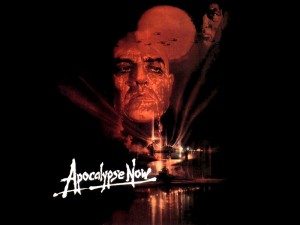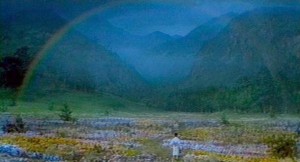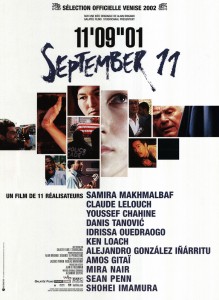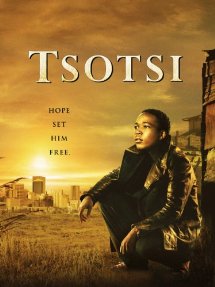
Post responses to the movie in the comments field below.

Post responses to the movie in the comments field below.
“The real ‘enemy’ the Americans were fighting was themselves,’ (2010). Apocalypse Now not only portrays a view about the Vietnam War that mostly affected the mind of the soldiers, it also portrays how much insanity and murder surrounded it. Horror in every form, explicit massacre, and a complete nightmare. The ‘other’ is the not knowing feature of what will happen to them. The unpredictable outcome of moving along the river without knowing what they’re destined to. Personally I can describe this movie as intense because I was a little nervous about what was going to happen next. Even in the part when we see Chef and Willard walking in the jungle in search of mangos and they hear a noise, thinking it could be a Vietnamese, when in fact it was a tiger. Their lives were filled with the unpredictable.
Themes of otherness best portrayed in the movie were also the idea that in order to come home you only had two options; dying or winning the war. The film’s voyage through the river takes us into several events where we see many Vietnamese dying, U.S. soldiers dying, helicopters destroyed, flames everywhere, people in pieces, kids running, crying, hurt, bleeding, burned, women and men shot at. Death surrounds everybody. There was no winning only death.
Reference
Richardson, M. (2010). Otherness in Hollywood Cinema. New York: The Continuum International Publishing Group Inc.

In Michael Richardson’s book, Otherness in Hollywood Cinema, he states, “No film in Hollywood history, I think, has directly confronted themes of otherness in a more complex or a more uncomfortable way than Apocalypse Now. (pg. 139). What “themes of otherness’ struck you in the film, and what does this film tell you about who the “other’ is? Contribute to discussion in the comments section of this post, to be found below.
Read Chapter 8 of his book to help you analyze the question. (Click above link; available electronically through UAF library)
You may also want to look at the article by Margot Norris, ‘Modernism and Vietnam: Francis Ford Coppala’s Apocalypse Now.’

The character and plot line of a short film is distinctly different from that of a feature. After seeing Akira Kurosawa’s Dream’s, write a 2-3 page paper (typed/double-spaced) examining the structure of one of these short films and it’s relationship to the the other seven films in Dreams. How do you think these structures relate to other Japanese art forms (namely literature or theatre), or compared to other film(s) by Kurosawa?

Choose two of the eleven short films of the anthology 11″09’01 to compare and contrast. Provide a short biography of each of the directors, then compare and contrast how the films depicted time, place, and perspective.
Post your compare/contrast thoughts to the discussion in the comments below this post, and be sure to comment on your peer’s work while you’re there!

In the manifesto: “Towards a Third Cinema” by Fernando Solanas and Octavio Getino, they state:
“The anti-imperialist struggle of the peoples of the Third World and of their equivalents inside the imperialist countries constitutes today the axis of the world revolution. Third cinema is, in our opinion, the cinema that recognizes in that struggle the most gigantic cultural, scientific, and artistic manifestation of our time, the great possibility of constructing a liberated personality with each people as the starting point – in a word, the decolonization of culture.”
In your opinion, do you think the ideals of Third Cinema are alive today? Give examples as to why or why not based on films seen for this class in the comments field below this post.
Hany Abu-Assad had a difficult time making this movie. The crew had to survive a missile attack on one occasion and a location scout was kidnapped. The director said that in retrospect he never would have made the film had he known the violence he would face. Even more, it is difficult for a Western mind to comprehend the logic of a suicide bomber attack–why an individual’s beliefs would allow him to “self-destruct.’ Comment on how Paradise Now, by both character content and technical means, deconstructs or opens up the mind to help the viewer contemplate the “unthinkable’ decision to become a suicide bomber.
Some military friends of mine have scoffed at the technical portrayal of defusing bombs presented in The Hurt Locker, citing inaccuracies such as the fact that such a small bomb-defusing crew would be sent out alone, and that crews were more accustomed to responding to situations than sniffing for bombs on deserted streets. Other soldiers have defended the overall “truth’ or “feel’ of the movie as representing the experience adequately, if in broad strokes. Thus we run up against the question of verisimilitude, or what I like to call truth effect. To what extent are films that are not documentary responsible to getting technical details right. Is there something in the idiom of film that presents special challenges, or requires a certain latitude?